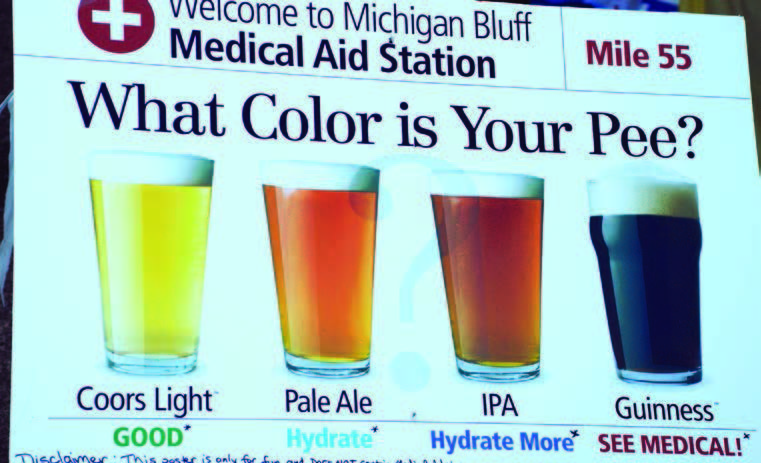Dehydration is defined as when the body loses more fluid than it is taking in. It is easy to imagine this happening with someone is exercising hard, or is in a hot environment, but can you get dehydrated in the normal workplace?
The body sheds fluids in a number of ways, including the obvious toilet stuff, such as sweating but also in your breath [but only tiny amounts]. So even in the office or workplace it is likely that our fluid levels are decreasing, additional factors such as air-conditioning or heaters can accelerate this process. As long as the fluid levels are regularly topped up this is fine, but if for any reason our fluid intake drops [or stops] then we can begin to become dehydrated.
On some of our travel medicine courses we are asked how much should my fluid intake be?
Repeated studies have failed to reach clear answers on recommended fluid intakes, as the physical characteristics of the individual are key, but the UK Food Standards Agency recommend drinking 1.2 litres each day. This is based on the the “average” person, living in the UK, during “normal” weather. People traveling or working in hot environments, or in other situations which increase the speed where fluid is lost, need to increase their fluid intake. Some militaries working in hot environments have increased the individual fluid intake to around 11 litres per day.
How to recognise dehydration
Two of the earliest signs of dehydration are thirst and dark urine. Thirst is probably the easiest [and more pleasant] one to monitor in the office, but it also has a flaw: the thirst sensation is removed before the required amount of fluid has been replaced. Knowing this we can ensure that we continue to take fluids on board past the point of quenching our thirst.

Symptoms of dehydration may include:
dizziness or light headedness
confusion and difficulty with concentration
headaches
fatigue
dry mouth, eyes and lips
passing small amounts of urine infrequently- this means less than three or four times daily
If the dehydration becomes severe it can result in:
not passing urine for eight hours
dry skins that slowly returns when pinched upwards
rapid, weal pluse
sunken eyes
seizures
unconsciousness
Treatment of dehydration
Individuals with have their favourite “fluids”, but the recommended fluids to help treat or prevent dehydration are: water, semi-skimmed milk, diluted squash or diluted fruit juices. In the case of treating dehydration, there are commercially available re-hydration solutions which work to replace not just the fluids lost but the additional salts and minerals.
You should resist the temptation to gulp the fluid, no matter how thirsty, as this can lead to a reflex form of vomiting, which will further dehydrate. People planning to carry out long periods of physical activity in hot environments should plan breaks and their fluid intake. For those on the move, products such as water bladders which can be worn on the back or carried in bags are recommended.
Treatment of babies and children
Plenty of fluids is the treatment of choice in dehydration, but with babies it is often wise to avoid fruit juice as this can make diarrhoea and vomiting worse. In children it is often helpful to supplement water with diluted fruit juices or squash. Giving water alone could further dilute already low levels of minerals in the child’s body.
Most cases of simple dehydration can be simply dealt with by re-hydrating, but a visit to the doctor or hospital may be required if you see signs of severe dehydration [as outlined above] or if symptoms continue. If a baby has six or more diarrhoeal stools or vomits three or more times in 24 hours you should contact your GP or out of hours medical advice provider.

